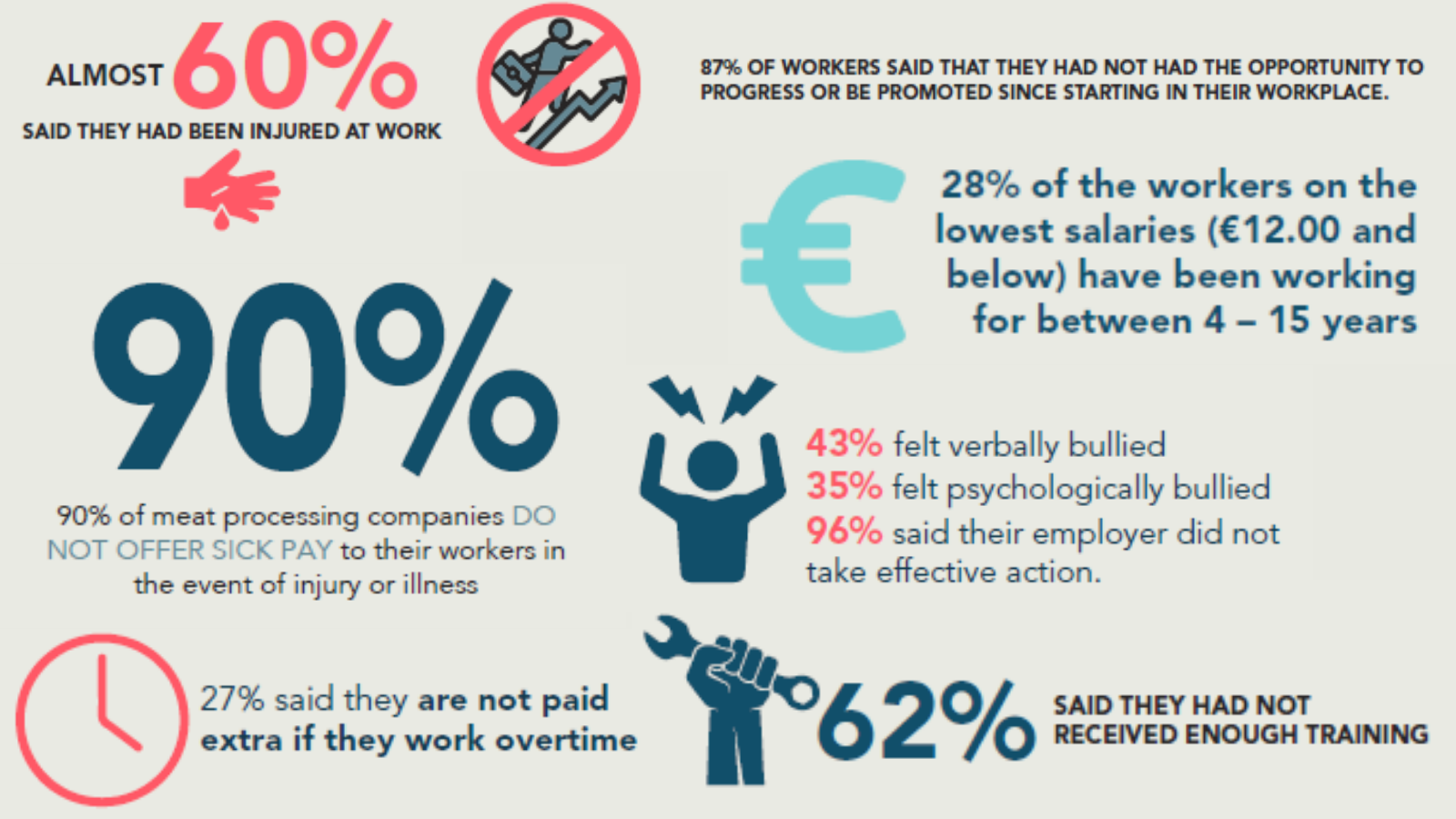“All of the time we are forced to do the worst and heaviest work because we are migrants and don’t have access to rights.” – a migrant meat factory worker
Selected report findings:
- Almost 60% of workers surveyed said they had been injured whilst working at a meat plant in Ireland
- 62% of workers said they had not received enough training when they started their jobs
- 90% of workers are not covered by occupational sick pay schemes in the event of injury or illness
- 28% of the workers on the lowest salaries (€12.00 and below) have been working for between four to 15 year
- 27% said they are not paid extra if they work overtime
- 43% felt verbally bullied / 35% felt psychologically bullied / 96% said their employer did not take effective action
- Top reasons for discrimination were related to nationality and race/ethnicity
- 87% of workers said that they had not had the opportunity to progress or be promoted since starting in their workplace
- Not a single worker surveyed said they felt valued
New research conducted with migrant meat factory workers across 13 counties in Ireland has revealed a systemic culture of discrimination and dangerous working conditions across the meat sector in Ireland, with many employers putting profit before the health and safety of workers.
The research was carried out by the Migrant Rights Centre Ireland (MRCI). Our methodology was developed to enable workers to overcome barriers often experienced when raising concerns. Barriers include a culture of fear in speaking out and fear of reprisals, including loss of employment and the loss of immigration status; exhaustion from working long hours; language accessibility; and a mistrust of authorities and institutions as a result systemic failure to protect workers. For many meat factory workers, this is the very first time they have spoken out about the conditions they are facing. The survey was translated into Latvian, Lithuanian, Polish, Brazilian Portuguese, Romanian and Russian to improve accessibility and accuracy in responses.


